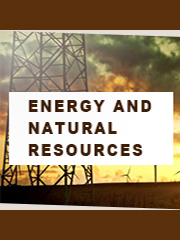TOP CATEGORY: Chemicals & Materials | Life Sciences | Banking & Finance | ICT Media

Download Report PDF Instantly
Report overview
The global Wind Power Generation Systems market was valued at US$ 67410 million in 2022 and is projected to reach US$ 161570 million by 2030, at a CAGR of 13.3% during the forecast period. The influence of COVID-19 and the Russia-Ukraine War were considered while estimating market sizes.
Wind power generation means getting the electrical energy by converting wind energy into rotating energy of the blades and converting that rotating energy into electrical energy by the generator. Wind power or wind energy is the use of wind turbines to generate electricity. Wind power is a popular, sustainable, renewable energy source that has a much smaller impact on the environment than burning fossil fuels. Wind farms consist of many individual wind turbines, which are connected to the electric power transmission network.
This report aims to provide a comprehensive presentation of the global market for Wind Power Generation Systems, with both quantitative and qualitative analysis, to help readers develop business/growth strategies, assess the market competitive situation, analyze their position in the current marketplace, and make informed business decisions regarding Wind Power Generation Systems. This report contains market size and forecasts of Wind Power Generation Systems in global, including the following market information:
Global key wind power generation ???? Vestas, GE, Siemens Gamesa etc. The top 3 companies hold a share about 60%. Asia is the largest market, with a share about 55%, followed by NAFTZ and Europe with the share about 17% and 15%. In terms of product, 2.X MW wind power generation is the largest segment, with a share over 47%. And in terms of application, the largest application is onshore, followed by offshore.
We surveyed the Wind Power Generation Systems manufacturers, suppliers, distributors and industry experts on this industry, involving the sales, revenue, demand, price change, product type, recent development and plan, industry trends, drivers, challenges, obstacles, and potential risks.
Total Market by Segment:
Global Wind Power Generation Systems Market, by Type, 2018-2023, 2024-2030 ($ Millions) & (K Units)
Global Wind Power Generation Systems Market Segment Percentages, by Type, 2022 (%)
Global Wind Power Generation Systems Market, by Application, 2018-2023, 2024-2030 ($ Millions) & (K Units)
Global Wind Power Generation Systems Market Segment Percentages, by Application, 2022 (%)
Global Wind Power Generation Systems Market, By Region and Country, 2018-2023, 2024-2030 ($ Millions) & (K Units)
Global Wind Power Generation Systems Market Segment Percentages, By Region and Country, 2022 (%)
Competitor Analysis
The report also provides analysis of leading market participants including:
Key companies Wind Power Generation Systems revenues in global market, 2018-2023 (Estimated), ($ millions)
Key companies Wind Power Generation Systems revenues share in global market, 2022 (%)
Key companies Wind Power Generation Systems sales in global market, 2018-2023 (Estimated), (K Units)
Key companies Wind Power Generation Systems sales share in global market, 2022 (%)
Further, the report presents profiles of competitors in the market, key players include:
Outline of Major Chapters: